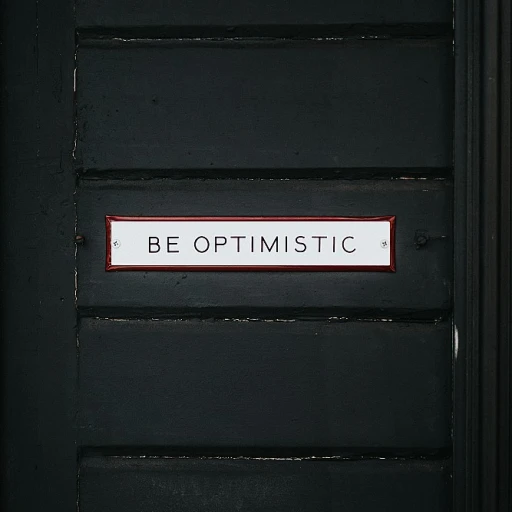
Understanding the CEO Coach's Impact
Exploring the CEO Coach's Role in Leadership
A CEO coach serves as a pivotal partner in the multifaceted journey of business leadership. By providing guidance tailored to the specific needs of each leader, CEO coaching enables business heads to hone their strategic mindset and successfully navigate the ever-changing landscape of corporate leadership. Executive coaching, particularly at the CEO level, offers a unique opportunity to delve deep into the personal nuances and professional challenges a chief executive is likely to encounter. By enhancing clarity and strategic vision, a CEO coach will help individuals to identify both their strengths and the blind spots that could hinder their growth. It's more than just mentorship — coaching is about creating a partnership where both coach and client explore challenges and opportunities together. Through this relationship, executives can align personal ambitions with the overarching objectives of the company, promoting overall business growth. CEO coaches act as sounding boards, helping leaders like you cope with the complexities intertwined with scaling a company. From overcoming immediate challenges to crafting long-term strategies, the impact a CEO coach has on the work life of a chief executive is profound and multifaceted. By being both a catalyst and a supportive confidant, CEO coaches empower leaders to unleash their full potential, tackle high-stakes decisions, and maintain equilibrium in the demanding work environment. Alongside fostering growth, they equip executives to face adversity with resilience, enriching their leadership capabilities. By working with a coach, business leaders gain insights into the intricacies of executive functioning, making them better equipped to handle the numerous tasks required — ultimately leading their organizations more effectively. For a deeper understanding of how this can impact your leadership journey, explore this discussion in this blog post.Aligning Personal and Organizational Goals
Bridging Personal Aspirations with Organizational Objectives
In the realm of business leadership, aligning personal and organizational goals presents a nuanced challenge for many CEOs. This is where a CEO coach plays a pivotal role, functioning as a bridge that synchronizes the chief executive's personal ambitions with the broader objectives of the company. Achieving this alignment is not just about setting the right goals, but also about understanding the intricacies of one's personal motivations and how they resonate with and support the company's mission.
Firstly, a coach helps the executive explore their fundamental values and how these can drive business success. They guide leaders to introspect and learn from past experiences, identifying blind spots that might impede growth. Throughout this process, the coach serves as a sounding board, offering insights to help better navigate these intricacies and leverage personal strengths to overcome challenges.
A practical aspect of this coaching dynamic involves setting clear, actionable objectives that harmonize with the company’s strategic direction. This is crucial for facilitating business growth and ensuring that efforts are not misguided. A successful coaching relationship will often witness the executive’s goals evolving over time, mirroring the dynamic nature of business landscapes.
Incorporating regular feedback and dialogue, the relationship between the CEO and the coach fosters a deeper understanding of challenges and opportunities that lie both within and outside the organization. Such continuous engagement is crucial to align the executive's evolving aspirations with the organization’s trajectory, ensuring all stakeholders are moving in harmony.
For more on navigating strategic challenges and aligning goals effectively, you may find further insights in this helpful guide.
Enhancing Decision-Making Skills
Refining the Art of Decision Making in Executive Roles
The journey of enhancing decision-making skills through CEO coaching is both a personal and professional evolution. Executive coaches provide a unique perspective, contextualizing decisions within broader business landscapes. This becomes increasingly pertinent for CEOs navigating the complex and ever-changing world of leadership. As business leaders, understanding the nuances in strategic decision-making will help in identifying challenges opportunities and transforming blind spots into growth avenues. In this dynamic journey, coaches focus on aligning the executive’s approach with strategic priorities, ensuring decisions are made with clarity and foresight. CEO coaching immerses executives in critical thinking exercises, drawing from years of expertise to question and challenge existing paradigms. This process not only bolsters decision-making acumen but also inspires confidence in addressing scaling CEO responsibilities. Moreover, decision-making prowess involves a delicate balance of intuition and data-driven insights. By fostering an environment centered on learning, executives are empowered to evaluate situations more effectively. This methodical approach extends beyond day-to-day operations, enabling CEOs to strategically plan for long term growth. The coaching relationship integrates techniques to help better anticipate business challenges. Executives are equipped with frameworks to prioritize actions that contribute to the company’s strategic objectives. Business owners and CEOs alike benefit from these insights, assuring that decisions align with the overarching vision, while also adapting to the immediate needs of the work environment. Ultimately, the decision-making skills honed through CEO coaching are instrumental in rendering impactful outcomes. By embracing this guidance, executives achieve their full potential, crafting strategies that resonate with sustained company growth and success. For more on how strategic leadership is navigated, delve into CEO's desk insights where additional strategies are explored.Building Resilience and Adaptability
Strengthening Resilience and Adaptability in Leadership
In the dynamic world of business, resilience and adaptability are crucial traits for any CEO. The challenges and opportunities that arise require a leader to pivot quickly and effectively. This is where the role of a CEO coach becomes invaluable. Through executive coaching, CEOs learn to navigate the complexities of their roles, helping them to not only survive but thrive in the face of adversity.
Coaches work with CEOs to identify blind spots and develop strategies to address them. This process involves a deep dive into the executive's work life, examining both personal and professional aspects to ensure alignment with the company's long-term goals. By doing so, a CEO can better manage stress and maintain a clear vision, even during turbulent times.
Moreover, a coaching relationship fosters a safe space for CEOs to explore new ideas and approaches without the fear of judgment. This environment encourages innovation and growth, allowing business leaders to push the boundaries of what's possible. Over the years, many CEOs have credited their coaches with helping them reach their full potential, turning challenges into stepping stones for success.
Ultimately, the ability to adapt and remain resilient is not just beneficial for the CEO but for the entire organization. As the chief executive becomes more adept at handling change, the company as a whole becomes more agile, better equipped to seize new opportunities and navigate the ever-evolving business landscape.
Fostering Effective Communication
Strengthening Communication Channels
In the realm of strategic leadership, effective communication is not just a skill but a necessity. CEOs often face the challenge of bridging the gap between their vision and the execution by their teams. This is where a CEO coach plays a pivotal role. By working closely with the executive, the coach helps to refine communication strategies that align with both personal and organizational goals.
Coaching can help business leaders identify and overcome communication blind spots, ensuring that messages are not only heard but understood. This is crucial in fostering a culture of transparency and trust within the company. A well-communicated strategy can galvanize teams, turning potential challenges into opportunities for growth.
Developing a Feedback Culture
Another aspect of enhancing communication is developing a robust feedback culture. A CEO coach will guide executives in creating an environment where feedback is not only welcomed but actively sought. This approach helps in identifying areas for improvement and encourages a continuous learning mindset, which is essential for long-term success.
Feedback loops can also help in aligning the company’s strategic direction with its operational execution. By fostering open communication, CEOs can ensure that their teams are aligned with the company's vision and are working towards common goals.
Leveraging Communication for Resilience
Resilience and adaptability, as discussed earlier, are critical in today’s fast-paced business environment. Effective communication is a cornerstone of building resilience. A CEO coach will help executives learn how to communicate under pressure, ensuring that they can lead their teams through challenging times with clarity and confidence.
By enhancing communication skills, CEOs can better navigate the complexities of leadership, ultimately driving the company towards its full potential. As the business landscape continues to evolve, the ability to communicate effectively will remain a key differentiator for successful leaders.














